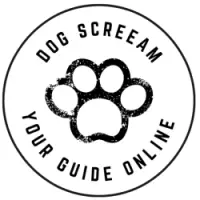Dogs and bones have a long and storied relationship. From the days of ancient civilizations, when dogs were first domesticated and trained as hunting companions, to the present day, when dogs are beloved family pets, bones have played a central role in the lives of our canine companions.
But when it comes to bones, not all types are created equal. While some bones are safe for dogs to chew on and consume, others can be dangerous, even deadly. So, the question arises: can dogs eat ham bones?

The short answer is no. Dogs should not be given ham bones to chew on or eat. Like most pork bones, ham bones are prone to splintering when chewed. This can lead to serious injury, as shards of bone can lodge in a dog’s throat, gums, or digestive tract, causing blockages, infections, or other serious health problems.
In addition to the risk of splintering, ham bones also tend to be high in fat, which can cause gastrointestinal upset in dogs. Dogs who consume large amounts of fatty foods are at risk for pancreatitis, a severe and potentially life-threatening condition that results from inflammation of the pancreas.
So, what can dogs safely chew on and eat when it comes to bones? While it’s always best to consult your veterinarian before giving your dog any bone, there are a few general guidelines.
First, stick to bones from larger animals, such as cows, sheep, or deer. These bones are less likely to splinter and shatter when chewed. It’s important to note that even these bones should be given to dogs in moderation and only under supervision.
If you decide to give your dog a raw bone, ensure it’s appropriate for its size and chewing abilities. For example, a tiny toy poodle might not be able to handle a large beef marrow bone, while a large breed, such as a Great Dane, might have no trouble at all. It’s also a good idea to avoid cooked bones, as they are more likely to splinter and break than raw bones.
In conclusion, while bones can be a great source of entertainment and nutrition for dogs, choosing them carefully and always supervising your dog when chewing on a bone is essential. Ham bones and most pork bones should be avoided due to the risk of splintering and the high-fat content. If you have any concerns about what types of bones are safe for your dog, consult your veterinarian for personalized advice.
Other options for providing your dog with a satisfying chew toy or treat. Many pet stores sell specialized chew toys made from safe, non-splintering materials and specifically designed for dogs. These toys can provide your dog with the same satisfaction and mental stimulation as chewing on a bone without the associated risks.
Another option is to give your dog a treat formulated explicitly for dental health. Many of these treats are made with ingredients that help to clean your dog’s teeth and gums as they chew, helping to prevent tartar buildup and other dental problems. Just be sure to choose a treat appropriate for your dog’s size and age, as some charms can be too hard for smaller or older dogs to chew.
It’s also important to remember that no chew toy or treat can replace the importance of regular dental care for your dog. This includes regular tooth brushing, professional cleanings, a healthy diet, and plenty of fresh water to drink. By taking good care of your dog’s teeth and gums, you can help ensure that they have a healthy and happy mouth and a long and active life.
In summary, while giving your dog a ham bone to chew on may be tempting, it’s important to remember that these bones can be dangerous due to the risk of splintering and the high-fat content. Many safer alternatives, such as specialized chew toys and dental treats, can provide your dog with the same sense of satisfaction and mental stimulation without the associated risks. As with any treat or chew toy, it’s always essential to choose one that is appropriate for your dog’s size and age and supervise them while chewing. Following these guidelines can help keep your dog safe and healthy and provide them with the enjoyable chewing experience they crave.
